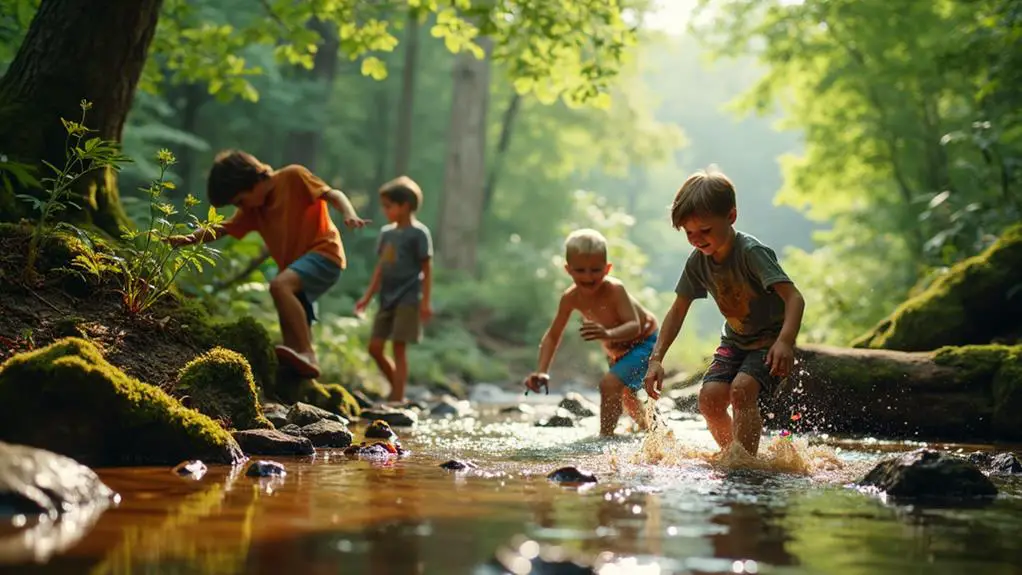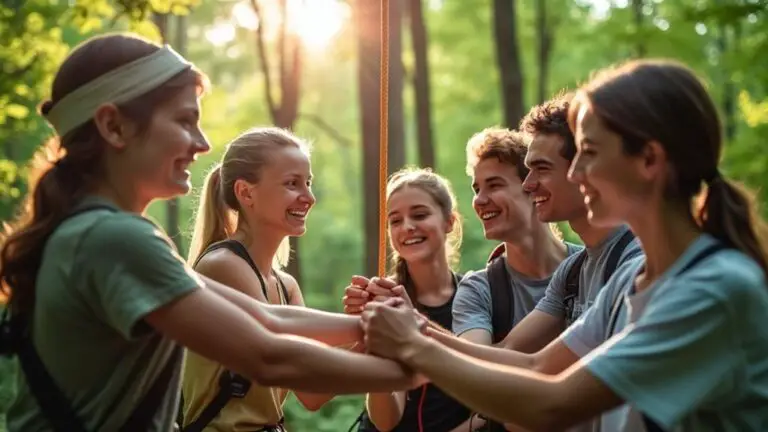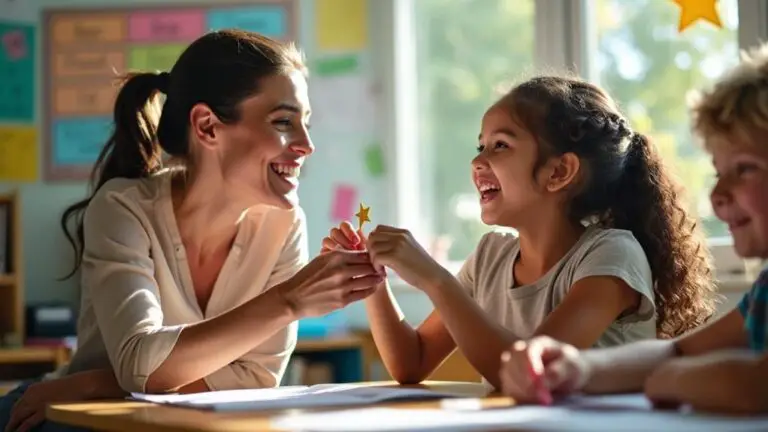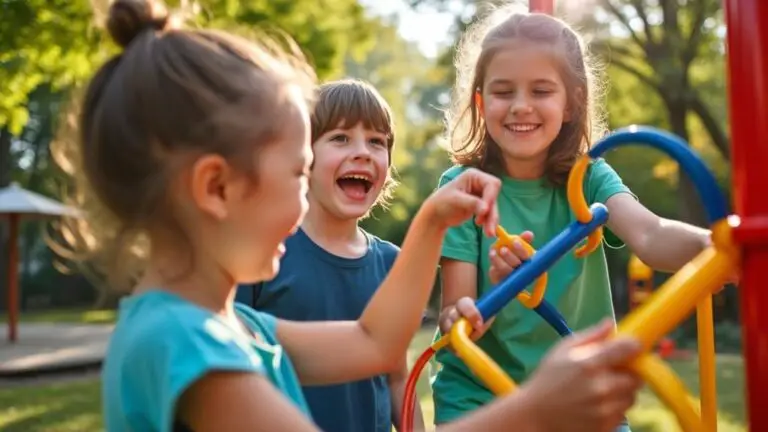The Role of Nature in Child Development
I've always been fascinated by how nature shapes our youngest minds. As a writer exploring child development, I've found compelling evidence that green spaces are more than just playgrounds—they're essential learning environments. From boosting creativity to reducing stress, nature's impact on children is profound and far-reaching. But what intrigues me most is how these benefits might be harnessed in educational settings. Could integrating nature into schools revolutionize the way we nurture young minds? There's still so much to uncover about this symbiotic relationship between children and the natural world, and I can't help but wonder what groundbreaking discoveries lie ahead.
Key Takeaways
- Nature exposure reduces stress and enhances emotional stability in children.
- Regular interaction with nature improves cognitive functioning, concentration, and academic performance.
- Access to green spaces correlates with higher life satisfaction and reduced anxiety in children.
- Outdoor activities foster essential creative play and social skills development.
- Integrating nature into education enhances overall child development and promotes cooperation among students.
Nature's Impact on Mental Health
Five key findings highlight nature's profound impact on children's mental health.
I've found that exposure to nature greatly reduces stress levels in children, contributing to their emotional stability.
It's fascinating to see that nature's impact on mental health is comparable to family background and parental age.
I'm impressed by how nature-based therapies positively influence children's emotional and cognitive development.
It's clear that regular exposure to natural environments enhances concentration, creativity, and academic performance.
Additionally, I've learned that access to green spaces correlates with higher life satisfaction and reduced anxiety and depression symptoms in children.
These findings underscore the essential role of nature in children's mental well-being, emphasizing the importance of incorporating nature experiences into their daily lives for best development.
Cognitive and Emotional Benefits
Nature's influence on children's cognitive and emotional development is profound and far-reaching. I've observed that regular nature exposure enhances cognitive functioning, leading to improved academic performance.
It's fascinating how outdoor activities foster creative play, which is essential for child development. I've seen firsthand how nature interactions contribute to emotional health and mental well-being, reducing stress levels in children.
Green spaces play a significant role in boosting mood and life satisfaction. I'm particularly impressed by the effectiveness of nature-based therapies in addressing emotional and behavioral challenges.
It's clear that engaging with nature offers a multitude of benefits for children's overall development. From enhancing concentration to promoting emotional stability, the positive impacts of nature on cognitive and emotional growth are undeniable.
I believe incorporating more nature exposure into children's lives is fundamental for their holistic development.
Integrating Nature Into Education
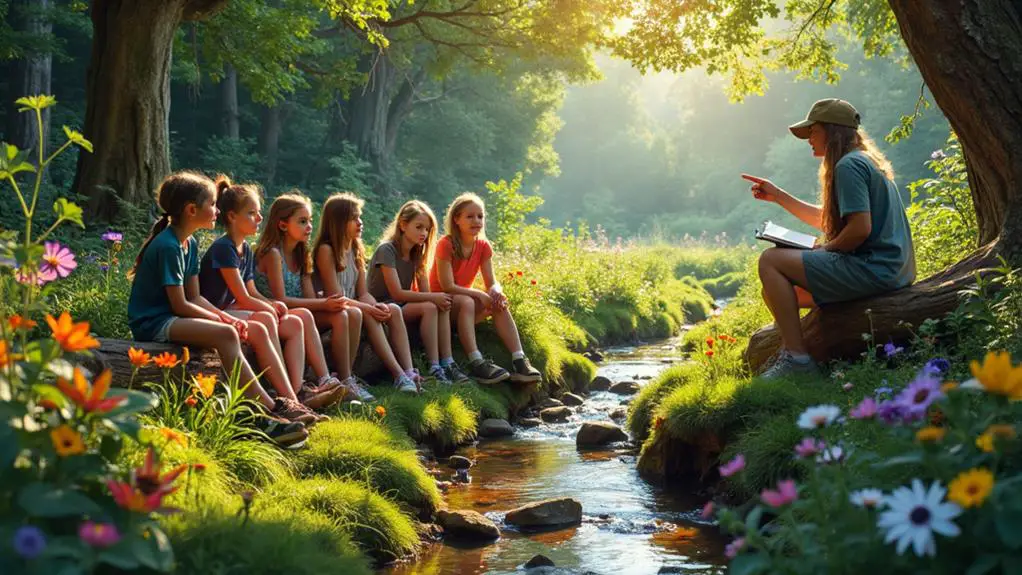
Building on the cognitive and emotional benefits of nature, it's clear that integrating natural experiences into education is a powerful way to enhance children's development.
I believe that creating green spaces within schools and incorporating outdoor activities into curricula can foster holistic child development, improving social skills, creativity, and academic performance. These nature experiences provide unique learning opportunities that promote cooperation and concentration among students.
To fully harness the potential of integrating nature into education, I argue for a shift in educational paradigms.
We need to recognize the crucial role of natural experiences in fostering emotional development and cognitive growth. I also stress the importance of ensuring equitable access to nature for all children.
Decision-makers must allocate resources to make nature-based learning experiences available, regardless of a child's background or location.
Future Research Directions
As we look toward the future of child development research, several significant areas demand our attention.
I believe we need to focus on developing nature-centric therapies to address children's mental health challenges. It's essential that we conduct longitudinal studies to explore the long-term cognitive and emotional impacts of nature experiences on childhood development.
I'm convinced that collaborative efforts among educators, decision-makers, and researchers are fundamental to effectively integrate nature into educational curricula.
We must also investigate how nature interactions can help children cope with environmental loss.
I think it's imperative that we emphasize the often-overlooked psychological aspects of nature interactions, as they're crucial for understanding childhood development and mental health.
Conclusion
I've explored nature's profound impact on child development, from boosting mental health to enhancing cognitive abilities. It's clear that integrating nature into education isn't just beneficial—it's essential. As we move forward, I'm excited to see more research on innovative ways to bring nature into urban environments and educational settings. I believe prioritizing children's access to green spaces will lead to healthier, happier, and more well-rounded future generations.

